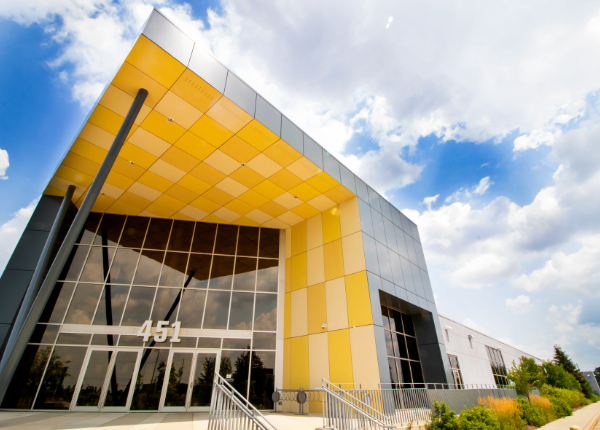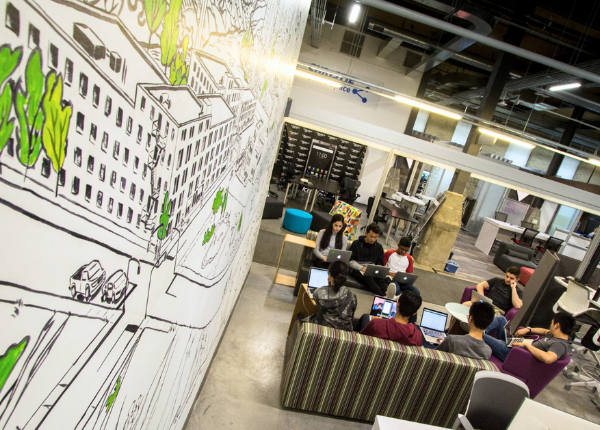No two expansions are the same. It’s true. There’s an obvious reason: no two companies are the same. Companies have different products, different challenges and strengths, as well as different motivations for expanding to a new location.
That said, there are a few different “types” of expansion we often see in Waterloo that share common features.
This is the second part in our “Guide to Foreign Business Expansion” series tackling the 12 questions every business needs to ask. Download the full guide now.
Starting Small
This approach is ideal for companies looking to access a community’s unique assets without committing to a longer-term or larger expansion. It involves identifying a flexible workspace within a community that provides the business ecosystem, talent and research assets necessary to develop a specific idea, solve a specific challenge or fill an existing gap in a company’s expertise or workforce.
Companies pursuing this expansion strategy often identify a local leader with experience in the ecosystem to find office space and build a core team. As the team explores the concept/challenge/opportunity the central office determines whether local advantages provide ample reason for continued growth.
Companies that have come to Waterloo following this method include Square, ESCRYPT Canada and Insticator. Each of these examples have stayed in the community and continued to expand.

Download the Guide to Foreign Business Expansion
Our Guide to Foreign Business Expansion looks at the biggest issues companies need to consider before an international expansion, from creating a talent pipeline to finding the right real estate.
Innovation Outpost
This approach is for companies that are looking to build a specialized team to focus on creating and developing innovative concepts to stay ahead of the competition. This team leverages local talent advantages – including access to students and researchers at local post-secondary institutions – to develop multiple product concepts for evaluation and further development. In this strategy, the new team never expands to more than 10-15 employees.
The team is often led by a local product development expert who can manage talent acquisition and liaise with local support groups, most often situated in a location like the “Innovation Alley” at Communitech. The objective is to develop concepts that the company doesn’t have the capacity or capability to explore within its existing corporate structure.
Companies that located in Waterloo via this method of expansion include TD Bank, Thomson Reuters, Interac and Wawanesa Insurance. Apart from being an excellent way to launch a low-risk expansion, an innovation outpost can also serve as the foundation for a larger future expansion.
Full Expansion
This approach is for companies that are ready to make a full commitment to a new location, either through relocation of their existing operation or the creation of a new subsidiary. Companies that take this approach are planning for a long-term relationship with the new community and often make this sort of investment when they are convinced of the geographical, talent and/or cost advantages a new location.
This type of expansion often begins with a larger launch team, including the assignment and potential relocation of existing company executives, and the purchase or lease of a property. This type of expansion often requires local assistance with immigration and relocation of talent, as well as talent scouting, real estate search and available incentives.
Companies that have come to Waterloo following this method include Toyota, LEONI Elocab Ltd. and Shimco. Google, which entered the Waterloo community via acquisition of a small startup, followed a very similar course in founding its Canadian engineering headquarters here.



